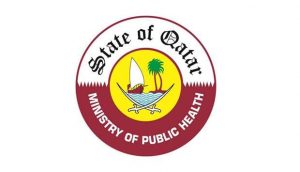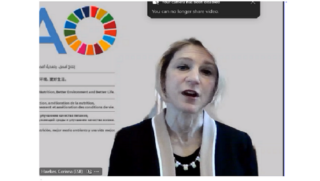
The Peninsula
Private laboratories will soon be allowed to conduct food safety tests in Qatar. Currently tests on food for human consumption are done by the Central Food laboratory under the Ministry of Public Health.
As part of ensuring the highest level of safety of both imported and local food, the central lab is set to adopt a number of new procedures, including a ‘Halal Laboratory’ system. With stringent quality controls, there is just less than 0.01% probability of inconsumable food entering the country, according to an expert.
“We will allow private laboratories to conduct human food tests, in the future. There are many who wish to open these private labs,” said Wasan Al Baker, Director of Food Safety and Environmental Health at the Ministry of Public Health (MoPH).
The food safety department had raised the issue to the Joint Human Food Control Committee which in turn adopted the proposed mechanism for the adoption of these laboratories in its meeting held on December 14, 2016.
“Presence of private food testing laboratories will greatly benefit importers by allowing them to conduct tests on samples of food that they want to import. It will help to ensure their compliance with the required specifications and standards before they start importing large shipments of such food. in case of a facility violates food regulations, an action will be taken to prevent it from happening again,” she said during an interview with Qatar News Agency.
Central Food Laboratory to adopt new system
Meanwhile, the Central Food Laboratory will soon adopt a new system called “Halal Laboratory” that allows to know if the source of the meat is from Halal animals or from non-Halal sources. The future plans also include the development of analytical ways to make sure that the animal has been slaughtered according to the Islamic rites.
“Other new procedures that will be soon introduced at the Central Food Laboratory to help in food safety processes includes checking fraud in the different types of meat and checking the presence of any drug residue in the product,” she revealed.
The lab will also adopt new procedures to identify unknown compounds in food products using high-resolution modes, and will work on adopting innovative ways in chemical and microbiological analysis of water.
She underlined that all human food entering Qatar through various border are subjected to ongoing control and inspection, therefore the probability of entry of any shipment of food into the country that is unfit for human consumption does not exceed 0.01%. According to official statistics, this percentages is one of the best ratios compared to other countries.
In 2016, about 3 million kilograms of food were rejected from entering the country because of non compliance with the standards and the GCC technical regulations, or for being unfit for human consumption.
“The department ensures the safety of all kinds of food in the Qatari market whether imported from abroad or produced locally, and that all food items are subjected to strict controls,” she said.
Environmental Health section of the department carries out routine inspection in local food outlets and kitchens that makes food for institutions. The section also withdraws food samples on regular basis to conduct lab tests and check safety. The section also follows up the emergency cases and investigates in the various food poisoning cases.



